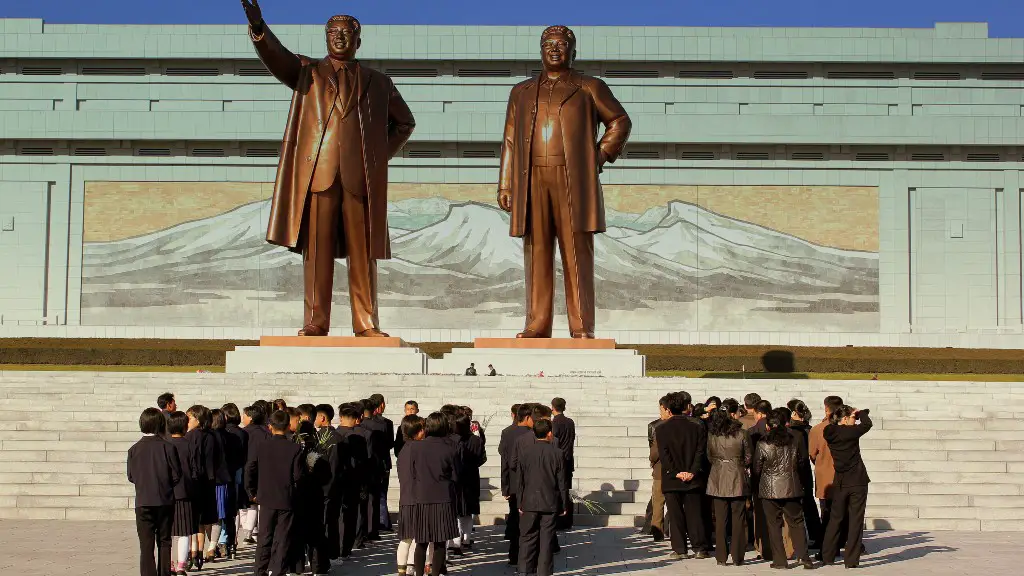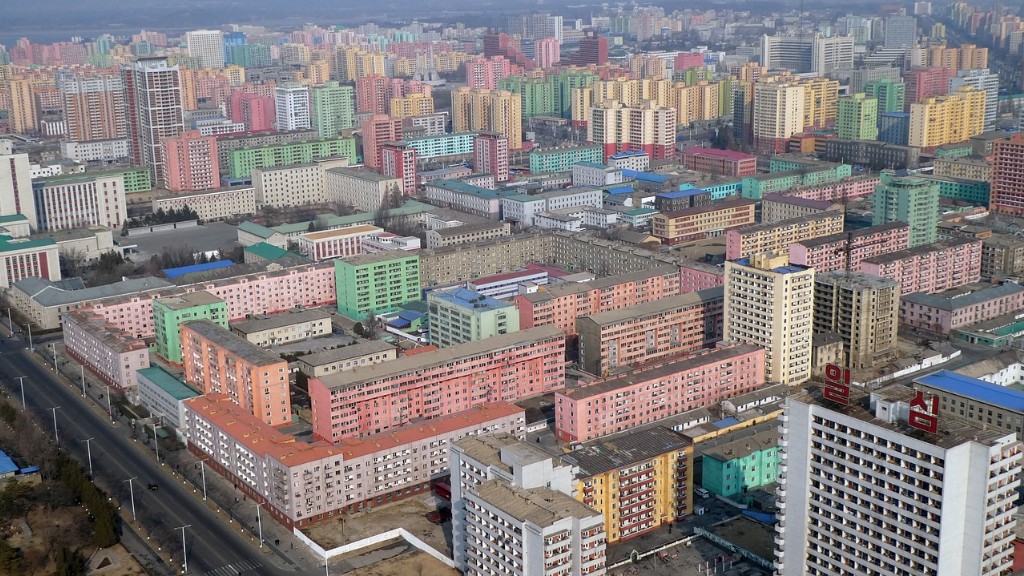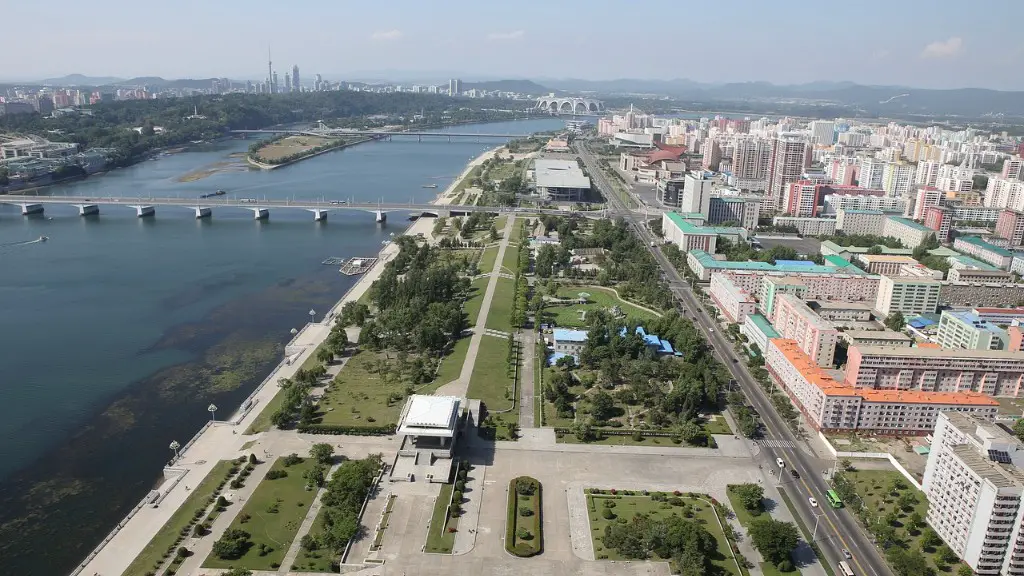China and North Korea have had a complicated and often contentious relations. In 1951, during the Korean War, China fought alongside North Korea against a U.S.-led United Nations coalition. Until the end of the Cold War, China provided political and economic assistance to North Korea, in an alliance the two countries refer to as “theyounger and elder brother.” That alliance has seen its ebbs and flows, particularly in the face of international pressure on North Korea. Today, while the relationship remains largely unchanged in terms of rhetoric, there has been a notable shift in commitment and action as China backs away from its traditional support of the Kim regime.
While many believe China and North Korea are still in an alliance, over the years, the two countries have drifted apart with the widening gap between their economic, political and military positions. Relations between the two countries have become strained since the nuclear tests conducted by North Korea in 2009 and the continued violations of human rights. North Korea also appears to have lost all trust in China after its policy switch, as evidenced by its increasing aggressiveness toward China in recent years. For its part, China has become increasingly vocal in criticizing North Korea’s recent actions and has started to move away from its longtime ally. There are further reports citing a decrease in aid sent to the Kim regime over recent months.
China is a major trade partner with North Korea who, along with a few other countries, provides food and other resources to the impoverished nation. Despite this economic assistance, some analysts believe that there is more to the relationship than money. The two countries remain close due to China’s strategic interest in maintaining a buffer between American and South Korean troops, as well as its stake in the regional stability to protect its own interests. Other experts suggest that China’s alliance with North Korea is a way of continuing its regional hegemony by maintaining regional stability, while at the same time maintaining a degree of control over the Kim regime.
While the two countries continue to share diplomatic ties, the level of their cooperation has waned in recent years. In 2013 and 2014, China made some unusual actions, by either siding with the UN Security Council or unilaterally imposing its own sanctions on the North Korean government. This indicates that China is finally taking a tougher stance against its long-time partner. China also recently joined forces with the US to support UN Security Council resolutions against North Korea. This suggests that in recent years, China has become increasingly disinterested in actively supporting the North Korean government’s actions.
Despite the fact that China and North Korea are not in an official alliance, political and economic ties between the two countries remain strong. The association between the two countries is undoubtedly rooted in tradition, however, it appears that the relationship has become more complex over the years. In the face of international pressure, China has pulled back from its long-standing support of the Kim regime, at times even siding with the US in international sanctions against North Korea. It appears that despite their close ties, the future of their relationship will remain uncertain.
What is China’s Motivation to remain in Alliance With North Korea
China’s rationale for allying itself with North Korea is complex and multi-faceted, with both domestic and international objectives. At a domestic level, China is seeking to maintain stability within the Korean peninsula to ensure the safety and economic growth of its citizens. A continuation of peace between the two Koreas also serves China’s strategic interests by helping to maintain the status quo in Northeast Asia, thus ensuring China’s continued dominance in the region. In addition, China has a moral obligation to the Kim regime, stemming from its past support of North Korea throughout Korean War and the Cold War.
At an international level, China’s motivation for maintaining its relationship with North Korea is largely based on geopolitical interests. Keeping North Korea as an ally helps China to curb the influence of the United States in the region, as well as its growing presence in the South China Sea. By maintaining a connection to North Korea, China is also able to ensure a degree of influence over the Kim regime, with the potential to use this influence to help tame hardline foreign policies and encourage the North to reengage in the international community.
China’s support of North Korea has helped to maintain a certain level of regional stability, but some argue that it has also enabled the Kim regime to pursue nuclear proliferation and human rights abuses. While China has condemned North Korea’s provocations and human rights violations, it continues to provide economic assistance to the country. This suggests that China’s allegiance may be based more on its own pursuit of regional power and stability rather than a moral obligation to the North Korean people.
Global Reception of China-North Korea Alliance
The global reception of China-North Korea Alliance depends on who’s asking. Some experts fear that China’s role in keeping the Kim regime in power is antithetical to the idea of international law and human rights. Others argue that China’s support is more of a pragmatic solution to maintaining a modicum of regional stability, rather than enabling a rogue state. On the other hand, some political analysts believe that the military alliance between China and North Korea further enhances China’s dominant position in the region.
At the UN, the Chinese delegation has emphasized that is only provides “necessary assistance” to its neighbor. In recent years, China has gradually distanced itself from the North Korean government, seemingly eager to show its commitment to international non-proliferation efforts. However, many see these actions as nothing more than lip service, doubting the extent to which China is truly willing to oppose the Kim regime.
China’s relationship with North Korea is also viewed with some skepticism in the United States. While attempting to ease tensions in the region, the US has continued to criticize China for its role in propping up the North Korean regime. There is also a sense of mistrust in China’s commitment to North Korean denuclearization, given its continued economic and military aid to North Korea.
The international community largely sees the Chinese-North Korean alliance as an impediment to the denuclearization of the Korean peninsula. Longstanding ties between the two countries have allowed North Korea to avoid the full effects of international pressure and sanctions, creating a challenge to the international system. Therefore, while China’s support may offer a degree of regional peace in the short term, that peace is dependent on a continued alliance between the two countries.
Potential Risks of Dissolving China-North Korea Alliance
If China fully dissolves the alliance with North Korea and takes the actions the international community is demanding, there are serious risks for China on multiple levels. Politically, such measures could have a serious negative impact on China’s relations with North Korea. This could lead to an unpredictable outcome, from North Korea becoming even more isolated to a drastic regime change in Pyongyang. Economically, China might see losses as a result of a potential collapse of North Korea, both in terms of trade disruptions, as well as foreign investment opportunities. Militarily, a collapse could have serious implications for China’s security and operations in the Korean peninsula.
On the other hand, if the Chinese-North Korean alliance is maintained, many believe the international community is forfeiting the chance to achieve global stability and peace. The alliance is seen to be preventing the full implementation of international sanctions, while also protecting North Korea’s human rights abuses. Therefore, many view the alliance as antithetical to the notion of universal peace and human rights.
Ultimately, the alliance between China and North Korea carries risks and benefits that must be carefully weighed by both countries. The alliance serves as a buffer against regional instability, while at the same time, enabling the Kim regime to continue its violations of international norms. In either case, it is clear that China’s decision on the matter carries significant implications for both itself and the North Korean people.
Economic Impact of China-North Korea Alliance
The Chinese-North Korean alliance has had an immense economic impact on both countries. Over the years, China has provided North Korea with massive amounts of aid, including food, textile, fuel and electrical equipment, among other goods. This assistance has helped North Korea to survive major famines and enable it to develop its economy. China’s aid to North Korea has also been used to finance large scale infrastructure projects, such as the Pyongyang Subway and the recently completed Wonsan-Kalma Coastal Tourist Area.
At the same time, the economic benefit to China has been immense. China is the primary producer of goods and energy that North Korea relies on, creating a symbiotic economic relationship between the two countries. This economic relationship has become even more important in recent years, as North Korea’s economy has continued to struggle. For instance, China is helping to finance the modernization of the North Korean port of Wonsan, offering a bright economic opportunity in a region that has been largely isolated from the global economy.
In addition to aiding North Korea’s economy, the alliance has also helped to open up new business and investment opportunities for Chinese companies. For instance, the Liaoning Eren Asset Management Group recently signed a $300 million deal to build a light industrial park near the Chinese-North Korean border. This project would facilitate economic growth in the border region, while also promoting greater integration between China and North Korea.
Ultimately, while the exact extent of the economic benefit of the alliance remains uncertain, it is clear that the relationship has been essential for the survival of North Korea and for the further development of China. The potential for new investment opportunities presents both countries with a potential avenue of growth, which could be instrumental in bringing North Korea into the modern era.
What’s Next for China-North Korea Alliance
The future of the China-North Korea is unclear. In recent years, both China and North Korea have seemed eager to cultivate their relationship, despite international pressure. However, tensions between the two countries have been on the rise, suggesting that the alliance may not endure in its current form.
It is clear that while China continues to provide support and aid to North Korea, it is also attempting to distance itself from the Kim regime. This is evidenced by China’s recent decision to support UN Security Council resolutions sanctioning North Korea as well as its criticism of the North’s human rights record. The dilemma for China is figuring out how much it is willing to sacrifice to maintain the alliance without undermining its own regional interests.
For now, China appears to be taking a cautious stance on the issue, opting to maintain the alliance while at the same time attempting to rein in North Korea’s more extreme actions. Looking ahead, it is likely that China will continue to maintain its ties with North Korea as a way of signaling its strategic interests in the region, while at the same time trying to keep the Kim regime in check.
Conclusion
The alliance between China and North Korea is complex, multifaceted and filled with risks and rewards. China has traditionally been an ally of North Korea, providing both economic and political support. However, in recent years, China has gradually distanced itself from the Kim regime, with notable shifts in commitment and action. Despite this, the two countries maintain close ties, rooted in tradition and China’s pursuit of regional power and stability.
The global reception of the alliance is largely negative, with many viewing it as a hindrance to international law and global security. In the future,





